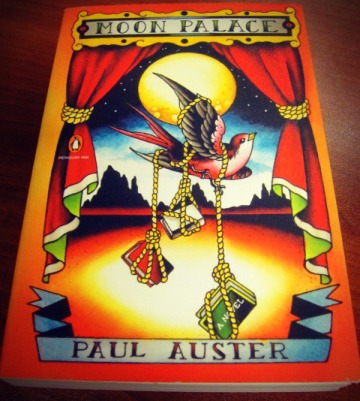Today we are posting our general and early impressions of the novel with NO spoilers. So even if you aren't participating in the read-along, feel free to read on!
According to my Goodreads, I have read 51% of this novel so far. If I had to classify this novel from the amount I've read so far, I'd call it part historical fiction, part physiological mystery. Alias Grace follows Grace Marks, a 16-year-old Canadian housemaid who is convicted of the murder of her employer and his mistress. The novel takes place in the mid 1800's and lays out Grace's past and the controversy surrounding her trail; many believed her to be innocent while others vehemently encouraged her incarceration. Grace herself claims to have no memory of the night these murders took place. The story* is told in a double narrative with chapters alternating from Grace's story, to the point of view of Dr. Simon Jordon, the doctor who is interviewing her in hopes of bringing her memories of the crime to the surface.
What struck me from the start was the first person narrative from Grace herself. Atwood rarely writes in a first person narrative and I have to say I am enjoying this departure. Grace's voice is dispassionate, yet compelling. However, I sense that Grace is not a trustworthy narrator, unreliable if you will. Since we aren't giving away spoilers I won't mention the details that led me to this hunch, but suffice it to say there are many suspicions that arise for me a reader.
Another notable aspect of the novel is it's structure. Between chapter sections there are epigraphs that consist of passages, poetry, and historical documents that offer further insight into the historical background of the case and reinforce themes and motifs that are prevalent in the narrative. Most notably, Atwood explores the politics behind cases such as Grace's and the role the media plays in the outcomes of these cases. From the start of the novel details of the case are ambiguous and the reader isn't told what to believe. We are left to make up our own mind, but given little (as of yet) concrete evidence and facts. There aren't many people left whose whereabouts are known with whom Dr. Simon can corroborate Grace's story which means that so far, we haven't been able to find out whether she is telling the truth or lying.
Although the novel is on the darker side and the subject matter quite serious, Atwood injects bits of humor throughout which adds to the fun of reading it. Of course the novel is beautify written, as I have come to expect any Atwood novel to be. Her passages glow with visceral details and eloquent prose.
"All the same, murderess is a strong word to have attached to you. It has a smell to it - that word - musky and opressive, like dead flowers in a vase. Sometimes at night I whisper it to myself: murderess, murderess. It rustles, like a taffeta skirt across the floor."All in all, so far this is a good read. It started off strong, staggered a bit (for me at least), but it's coming back around. The more I read, the more I don't want to put the book down. I hope that by the end of the novel we are given answers, but given the ambitiousness of the first half of the novel, I've got a sneaky feeling we may be left in the dark a bit.
Want to hear more? Visit Bookish Habits and Bookworm Meets Bookworm to read more initial thoughts! We will be posting our final thoughts of the novel Wednesday, May 30th. (I know there are a handful of others participating, so please let me know who you are so I can link you as well.)
*It is worth noting that although this is a work of fiction, there was a case that took place in Canada involving Grace Marks, a young woman tried for the murders of her employers and his mistress.












